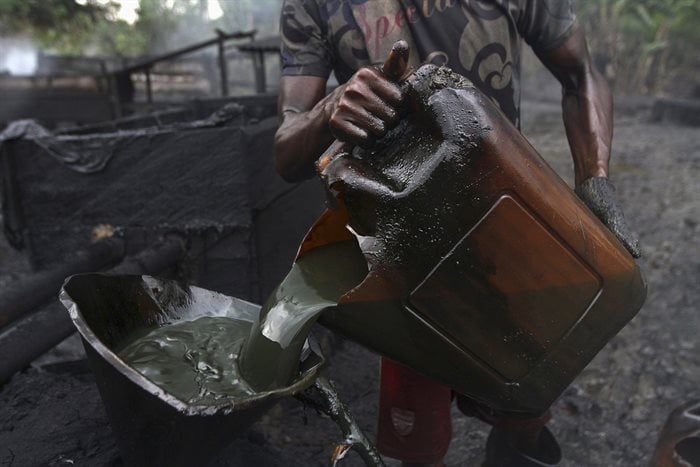
Nigeria loses millions of barrels of crude oil a year because of theft and vandalism including tapping of crude from a maze of pipelines owned by oil majors, underscoring how poor security causes vast financial losses for the country.
Gbenga Komolafe, the head of the Nigerian Upstream Petroleum Regulatory Commission, said of the 141 million barrels of oil produced in the first quarter of 2022, only about 132 million barrels of oil were received at export terminals.
"This indicates that over nine million barrels of oil was lost to crude oil theft ... This amounts to a loss in government revenue of about $1bn ... in just one quarter," Komolafe said in a statement.
"This trend poses an existential threat to the oil and gas sector and by extension, the Nigerian economy if not curbed."
Crude oil theft has increased to a daily average of 108,000 barrels in the first quarter of 2022 from 103,000 barrels in 2021, Komolafe said.
The theft has resulted in the declaration of force majeure at Bonny Oil & Gas Terminal, a pipeline transporting crude from the oil-rich Niger Delta to export vessels, among others, creating a hostile environment and disincentive to investors.
Nigerian President Muhammadu Buhari has pledged to ensure that oil theft is stopped and has set up dedicated courts to combat the problem, but it still persists.
Nigeria's oil minister Timipre Sylva said last week he expected to see some improvement in security in the sector, enabling Nigeria to meet its OPEC production quota by the end of August.

Reuters, the news and media division of Thomson Reuters, is the world's largest multimedia news provider, reaching billions of people worldwide every day.
Go to: https://www.reuters.com/